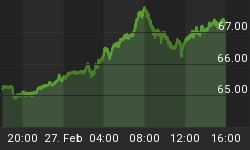The China connection has consistently been a bogeyman for the wildly popular TikTok, and now, TikTok feels completed to distance itself further from Beijing as India--its biggest market--bans the app over government infiltration fears. India has moved to ban not only TikTok but 58 other Chinese apps, including Tencent’s WeChat, as a “threat to sovereignty and integrity”, on the heels of deadly clashes between the two countries in a remote border region.
A statement from India’s information technology ministry said reports indicated that the mobile apps were “stealing and surreptitiously transmitting users’ data”.
TikTok, owned by Chinese ByteDance--which was counting on $1 billion in ad revenue from India alone this year--has responded quickly in an effort to extricate itself from any connection to China and its military standoff with India.
Reuters reports that it has seen correspondence between the Indian government and TikTok in which the latter insists that the Chinese government has not been requesting user data from the app, and that even if it did, TikTok--which is not available in China at all--would not comply.
"I can confirm that the Chinese government has never made a request to us for the TikTok data of Indian users," CEO Kevin Mayer assured the Indian government last week. “If we do receive such a request in the future,” he added, “we would not comply.”
TikTok says the data is stored in Singapore, while the Associated Press now reports that it is shifting that data to Ireland.
The immediate beneficiaries are Instagram’s Reel and local Indian rival Roposo.
Indeed, it’s been great for local apps, with Roposo, for instance, claiming to have added 22 million users in just 48 hours after the ban, according to Reuters.
Facebook’s Instagram couldn’t be happier at the opportunity. Instagram Reel--a video editing tool for TikTok-style fare to be shared on Instagram Stories, is now attempting to emerge in India, according to BusinessInsider.
Related: How A Pandemic Made Americans Better Workers
Still, analysts argue that it will be very difficult to fully ban TikTok in India because it cannot be erased from devices that had downloaded it prior to the ban. That leaves pundits suggesting that the move by India was meant to send a geopolitical message less than it was about fears of Beijing tapping into India user data.
In the meantime, India is now at a bit of a crossroads following the worst border clashes with China in 50 years in which 20 Indian soldiers were killed recently.
The border clashes are really all about Kashmir, and were prompted by India’s move to revoke the special status of this disputed territory in August 2019, breaking a fragile deal between China, India and Pakistan--all of whom hold part of this territory--that has lasted for 70 years. India split Kashmir into two parts, and China moved troops into the area in May.
Now, it’s a complicated situation when trade between the two countries hit $95 billion in 2018--up from only $3 billion in 2000--in China’s favor.
“There is too much of Chinese presence in the everyday life of the average Indian,” ABC News quoted Alka Acharya, professor of Chinese Studies at Jawaharlal Nehru University in New Delhi, as saying. The professor suggested that India had to respond with a large message following the death of its soldiers.
For TikTok, it means the potential loss of $6 billion if we are to believe the Chinese media, and assuming Indians who already have the app heed the government’s request that they delete it.
By Fred Dunkley for Safehaven.com
More Top Reads From Safehaven.com:
















